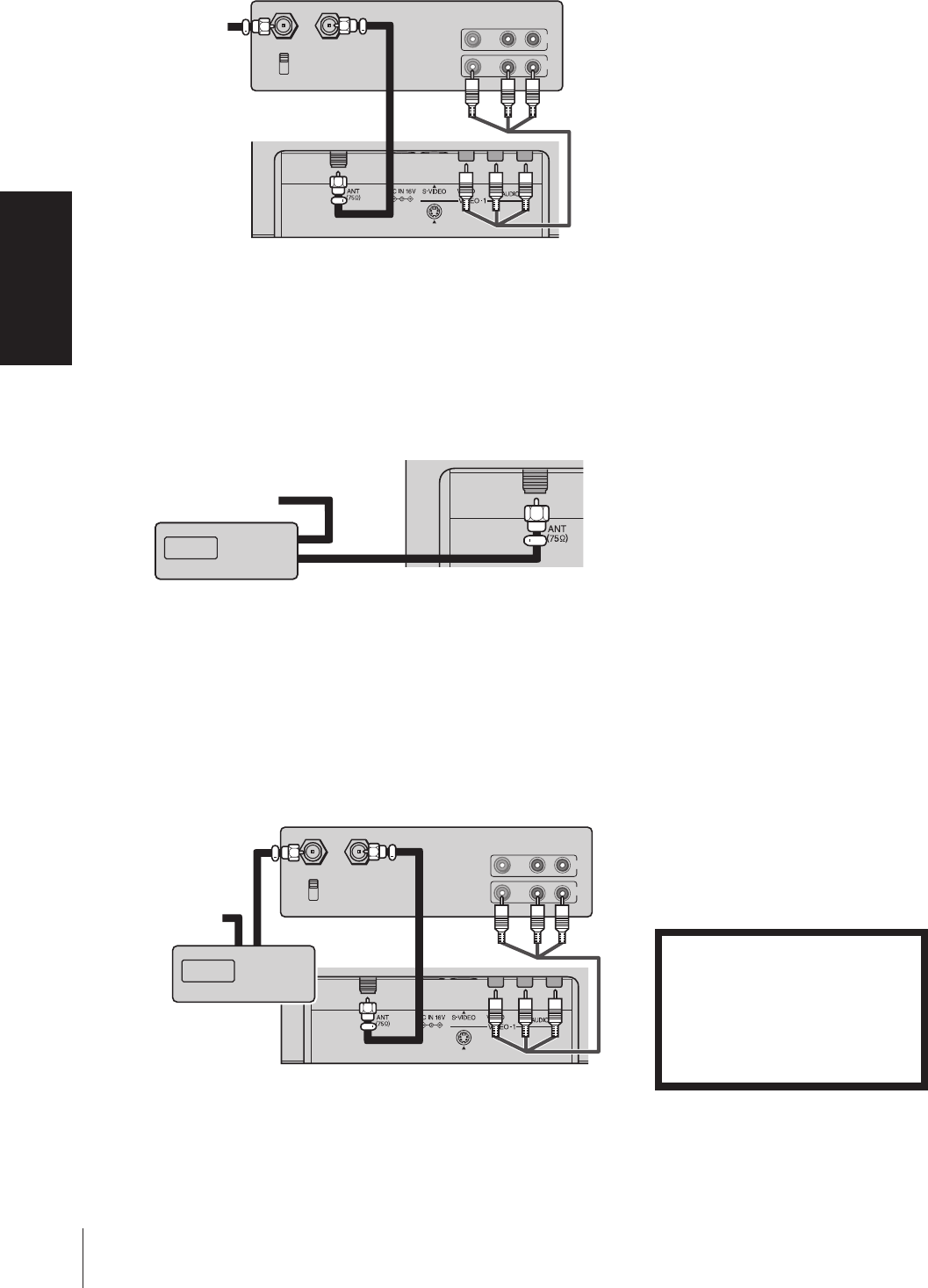
14VL43U, 20VL43U(E/F/S)
8
Connecting
your TV
Connecting a VCR
This connection allows you to watch local channels and video programs,
play or record on the VCR while watching TV, and record from one
channel while watching another channel.
Connecting a cable converter box
This connection allows you to watch basic and premium cable channels.
Tune the TV to channel 3 or 4 (whichever channel is vacant in your
area), and use the converter box to change channels.
Note:
When you use a converter box with your TV,
the channel selection feature does not
operate.
Connecting a cable converter box and a VCR
This connection allows you to watch and record basic and premium
cable channels, as well as watch videotapes. Set the TV signal source to
VIDEO 1(page 22). Tune the VCR to channel 3 or 4 (the same channel
as the converter box output switch), and use the cable converter box to
change channels.
Note:
When you use a converter box with your TV,
the channel selection feature does not
operate.
If you have a mono VCR, connect L/Mono
to VCR Audio OUT using only one audio
cable.
If you have an S-VHS VCR, use an S-video
cable instead of a standard video cable.
The TV side panel can be used to connect a
VCR or other video equipment.
The unauthorized recording, use,
distribution, or revision of television
programs, videotapes, DVDs, and other
materials is prohibited under the Copyright
Laws of the United States and other
countries, and may subject you to civil and
criminal liability.
VCR
From antenna
or Cable
Back of TV
IN from ANT
VIDEO AUDIO
OUT to TV
CH 3
LR
CH 4
IN
OUT
Cable converter box
IN
OUT
From Cable
Back of TV
VCR
From Cable
IN from ANT
VIDEO AUDIO
OUT to TV
CH 3
LR
CH 4
IN
OUT
Cable converter box
IN
OUT
Back of TV
Note:
If you have a mono VCR, connect L/Mono
to VCR Audio OUT using only one audio
cable.
If you have an S-VHS VCR, use an S-video
cable (in the S-video jacks) instead of the
regular video cable.
14VL43U(E) 07-11 03.3.4, 9:48 AM8


















